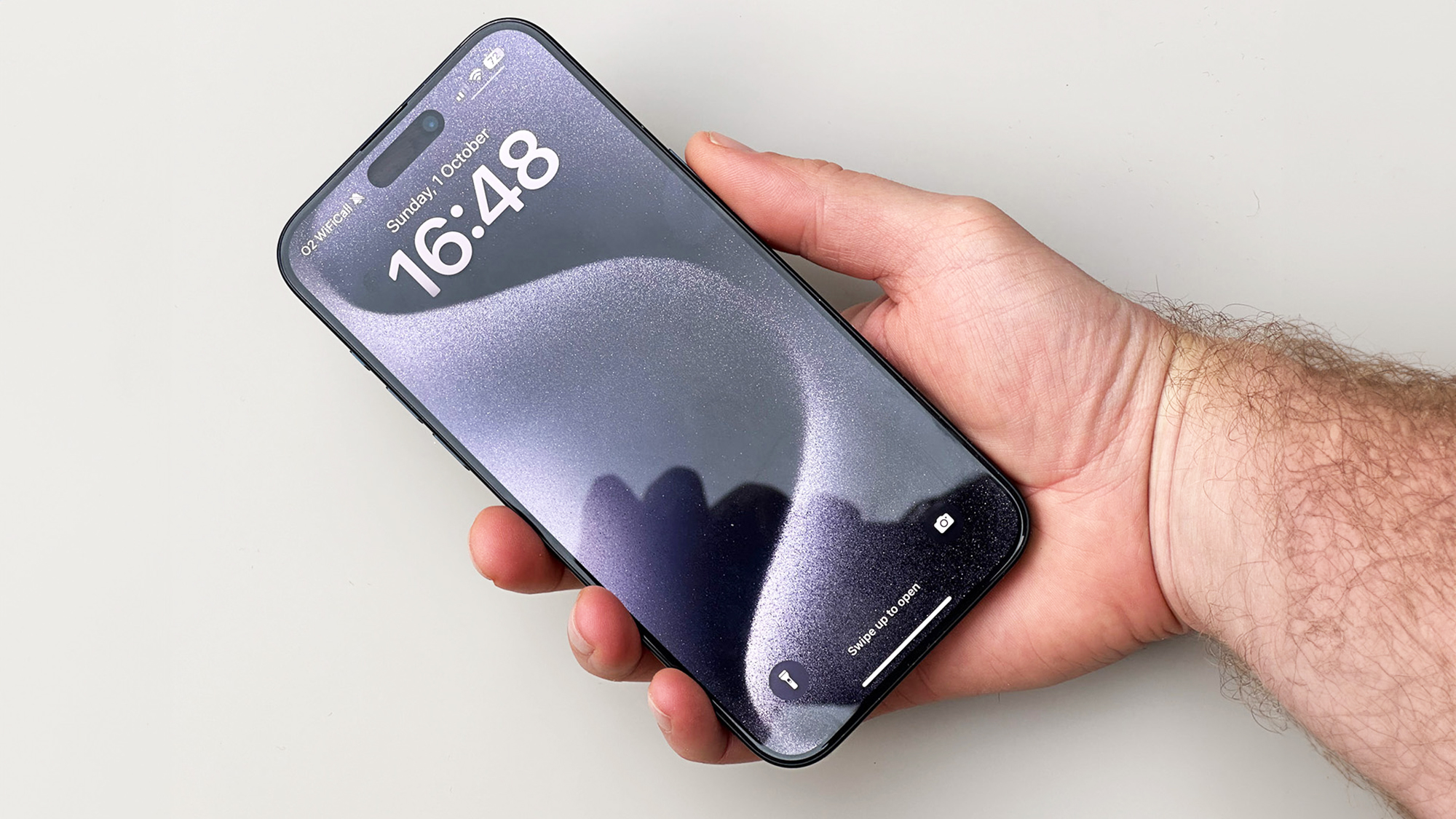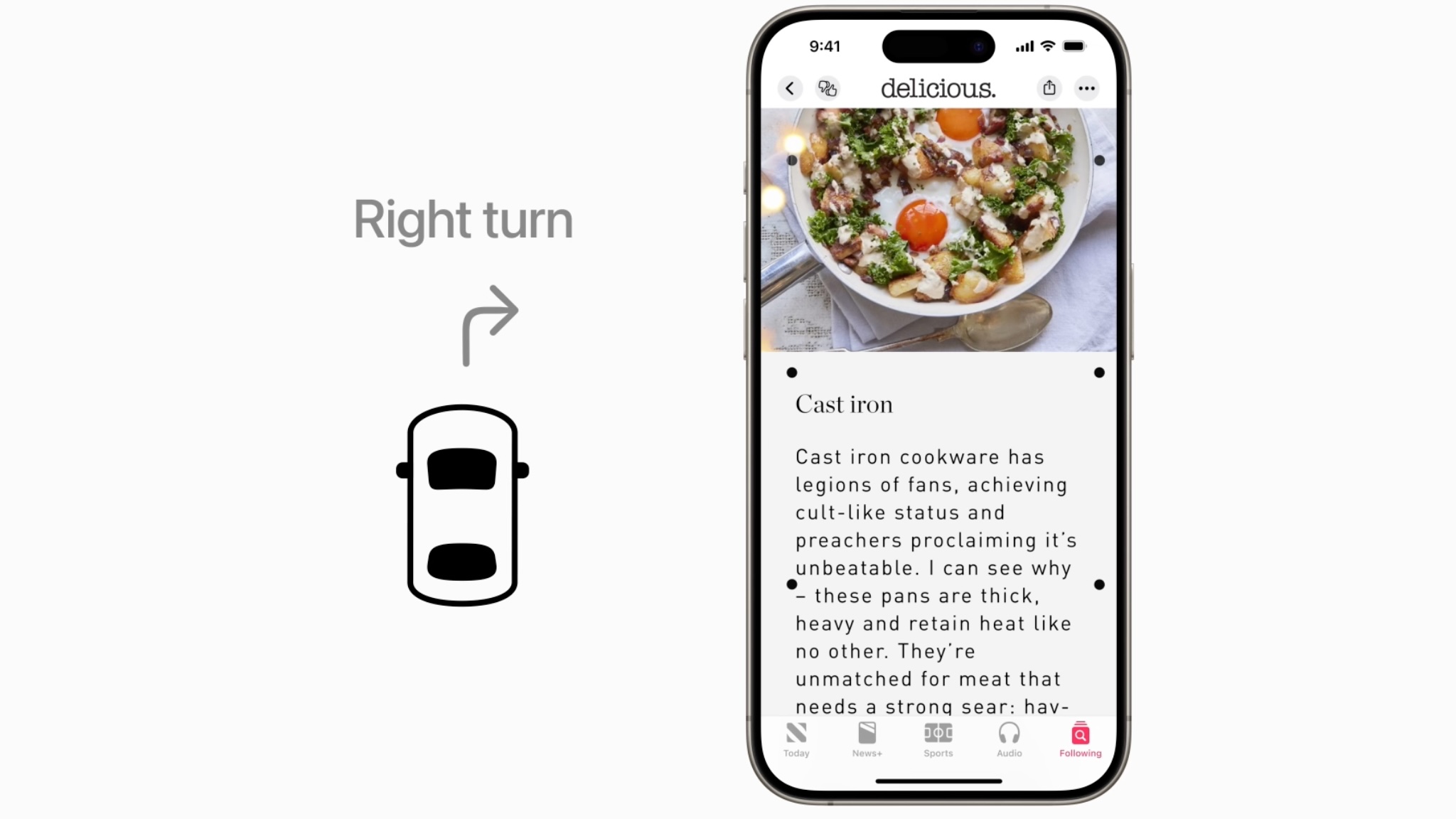An iPhone update is coming that could mean an end to car sickness
Apple's accessibility updates will make reading during your commute or car journey a lot more pleasant


Get all the latest news, reviews, deals and buying guides on gorgeous tech, home and active products from the T3 experts
You are now subscribed
Your newsletter sign-up was successful
Quick Summary
Apple will add new accessibility features to its iPhones later this year, with one adjusting the experience for those who suffer from travel sickness.
It'll judge the motion and acceleration inside a vehicle and provide visual cues on the phone's screen to help you adjust.
We've all done it: whether on a tilting train, a ferry, or in the passenger seat of a car, the desire to catch up on social media or look at that longread can sometimes leave you feeling distinctly queasy. Until now the best advice to avoid travel sickness was not to read, but Apple has a better idea and it's bringing it to your iPhone.
Apple is bringing lots of new accessibility features to iOS later this year, and one of the most interesting ones is called Vehicle Motion Cues.
It can detect the acceleration, deceleration and cornering of a vehicle, and when it does it then provides visual cues on the screen to help avoid the dreaded feelings of nausea. The examples Apple provides are based on being in a car but there's no reason why the same feature can't work with other modes of transport.

How do visual cues reduce car sickness?
As Apple explains it, the unwell feelings are caused by a sensory conflict: when you're in a vehicle your body feels movement but if you're not looking out of the window your eyes don't see it.
To deal with that, Apple's system will provide moving dots on the screen that are designed to replicate the movement you'd see if you weren't glued to your iPhone. If the vehicle isn't moving the cues, little black dots that live at the sides of your screen, don't move either. But if you corner, they'll move across your screen to reflect that.
There's no firm date for when this new feature will arrive, but it's most likely to be when iOS 18 releases – and that's currently scheduled for the usual September launch. And the motion cues won't be the only improved accessibility features.
Apple has also announced eye tracking that'll enable you to navigate your iPhone or iPad using only eye movements, and there will be new voice control for CarPlay and haptics for music later this year too. That latter feature will use the vibration motor of your iPhone to turn music into vibration in order to help people with hearing loss or deafness to experience music on their devices.
Get all the latest news, reviews, deals and buying guides on gorgeous tech, home and active products from the T3 experts
Writer, musician and broadcaster Carrie Marshall has been covering technology since 1998 and is particularly interested in how tech can help us live our best lives. Her CV is a who’s who of magazines, newspapers, websites and radio programmes ranging from T3, Techradar and MacFormat to the BBC, Sunday Post and People’s Friend. Carrie has written more than a dozen books, ghost-wrote two more and co-wrote seven more books and a Radio 2 documentary series; her memoir, Carrie Kills A Man, was shortlisted for the British Book Awards. When she’s not scribbling, Carrie is the singer in Glaswegian rock band Unquiet Mind (unquietmindmusic).
